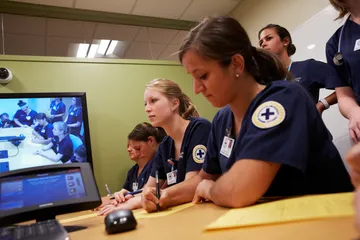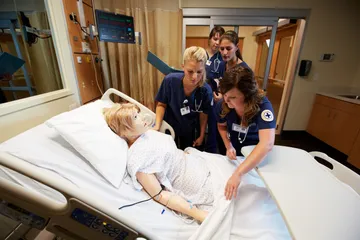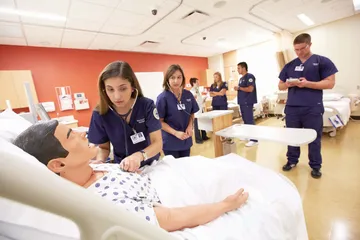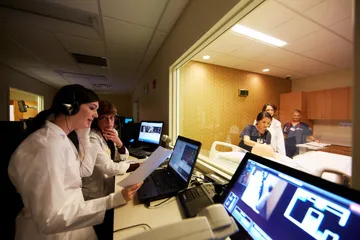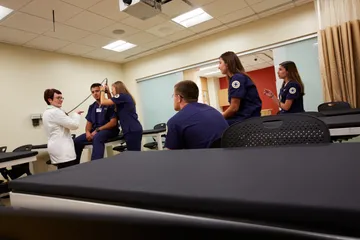Marquette University partnered with Wheaton Franciscan Healthcare Center to bring a new clinical simulation lab to the school's College of Nursing. The new lab was designed to be at the technological forefront of nursing education, providing an environment that is realistic to the clinical environments that students will ultimately work in after graduation. Kahler Slater provided complete programming, planning and architectural services for this important renovation project.
The Center for Clinical Simulation includes a simulated hospital with intensive care rooms, medical surgical rooms, a pediatric/neonatal intensive care unit and a labor and delivery suite. It also features provider offices, a home health apartment, skills labs with various levels of technology and debrief rooms where educators can review video recordings of simulation exercises with the students. From its computerized patient mannequins to observation and debrief capabilities, the lab employs the latest technology. The debrief rooms allow instructors and student teams to critique simulations and are designed to help instructors provide immediate feedback and facilitate engaged learning. The design takes cues from Marquette University's campus, while also creating a realistic health care environment.
